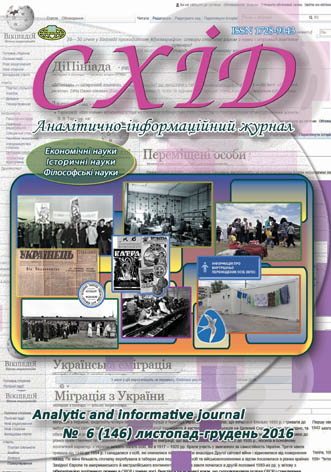Absolute music in retrospective of intellectual history
DOI:
https://doi.org/10.21847/1728-9343.2016.6(146).91777Keywords:
absolute music, intellectual history, reconstruction, hermeneutics, history of philosophy, music studiesAbstract
The history of the phrase absolute music has been studied by many theorists of music and music historians, while historians of philosophy proved to be rather reluctant to such syncretic concept. However, absolute music is exactly the case of non-philosophical appropriation of a philosophical category, which fits theoretical framework of the studies in intellectual history. Initial exploration on the synthesis of history of philosophy and musicology and music history has shown that the conceptual field of intellectual history enables the transition from abstract ideas to concrete social history of thought. It is proved that "absolute music" is not an authentic concept of music culture of the nineteenth century, but rather a good invention of new musical hermeneutics, which defined a period in the development of music and paradigm of concepts that characterized autonomy of musical form. The subject of historical and philosophical studies of the phrase "absolute music" lies in transformation of a philosophical term into a unit of aesthetic discourse, and later its reincarnation in the concept of musical historiosophy. Both philosophical and musicological approaches to the history of absolute music are based on the assumption that only theoretically relevant assertions and judgments appeal to the hermeneutic reconstruction and generalization, whereas political and social references of the discourse of absolute music can be left aside. So futher research shall focus on possibilities of how to reach the concrete social background of that form of thinking which employs the idiom absolute music.
Downloads
References
Ashby, A. (2010), Absolute music, mechanical reproduction, University of California Press, Berkeley, 332 p. doi: 10.1525/california/9780520264793.001.0001
Bonds, M.E. (2014), Absolute music: the history of an idea, Oxford University Press, New York, 400 p. doi: 10.1093/acprof:oso/9780199343638.001.0001
Chua, D. (1999), Absolute music and the construction of meaning, Cambridge University Press, New York, 327 p. doi: 10.1017/CBO9780511481697
Dahlhaus, C. (1989), The idea of absolute music, The University of Chicago Press, Chicago, 176 p. (eng).
Lee, Sh. D. (2010), ‘Alles, was ist, endet:’ On dramatic text, absolute music, Adorno, and Wagner’s Ring, University of Toronto Quarterly, Vol. 79, Number 3, 922-940 (eng).
Pederson, S. (2009), Defining the term ‘absolute music’ historically, Music & Letters, Vol. 90 No. 2. pp. 240-262. doi: 10.1093/ml/gcp009
Pederson, S. (2016), Absolute music, in: German aesthetics: Fundamental concepts from Baumgarten to Adorno, Bloomsbury Academic, London, pp. 84-90. doi: 10.5040/9781501321511.ch-010
Wagner, R. (1978), Selected works, Iskusstvo, Moscow, 695 p. (rus).
Pylaiev M. (2012), C. Dhalhaus and E.Th.A. Hoffmann: hermeneutic model of “absolute music”, Music Academy, №1, Pp. 158-160 (rus).
Cherednichenko T. (2003), Absolute music, in: Lexicon of non-classics. Artistic and aesthetic culture of the 20th century, ROSSPEN, Moscow, pp. 13-14 (rus).
Chernoivanenko, A. (2014), The Concept of «Absolute Music» in the Development of Musical Instrumentalism, Music art and culture, Vol. 19, рp. 224-235 (ukr).
Downloads
Published
How to Cite
Issue
Section
License
Copyright (c) 2017 Andriі Karpenko, Olena Karpenko

This work is licensed under a Creative Commons Attribution-NonCommercial-NoDerivatives 4.0 International License.
1. Authors bear responsibility for the accuracy of facts, quotations, numbers and names used.
2. Manuscripts are not sent back.
3. The publisher does not always agree with the authors' opinion.
4. The authors reserve the right to authorship of the work and pass the first publication right of this work to the journal under the terms of a Creative Commons Attribution-NonCommercial-NoDerivatives 4.0 International License. This license allows others to distribute (copy) the published work for non-commercial purposes, provided there is mandatory attribution to its authors and a link to the first publication in our journal.
5. The authors have the right to conclude separate supplement agreements that relate to non-exclusive work distribution in the form in which it has been published by the journal (for example, to upload the work to the online storage of the journal or publish it as part of a monograph), provided that the reference to the first publication of the work in this journal is included.

